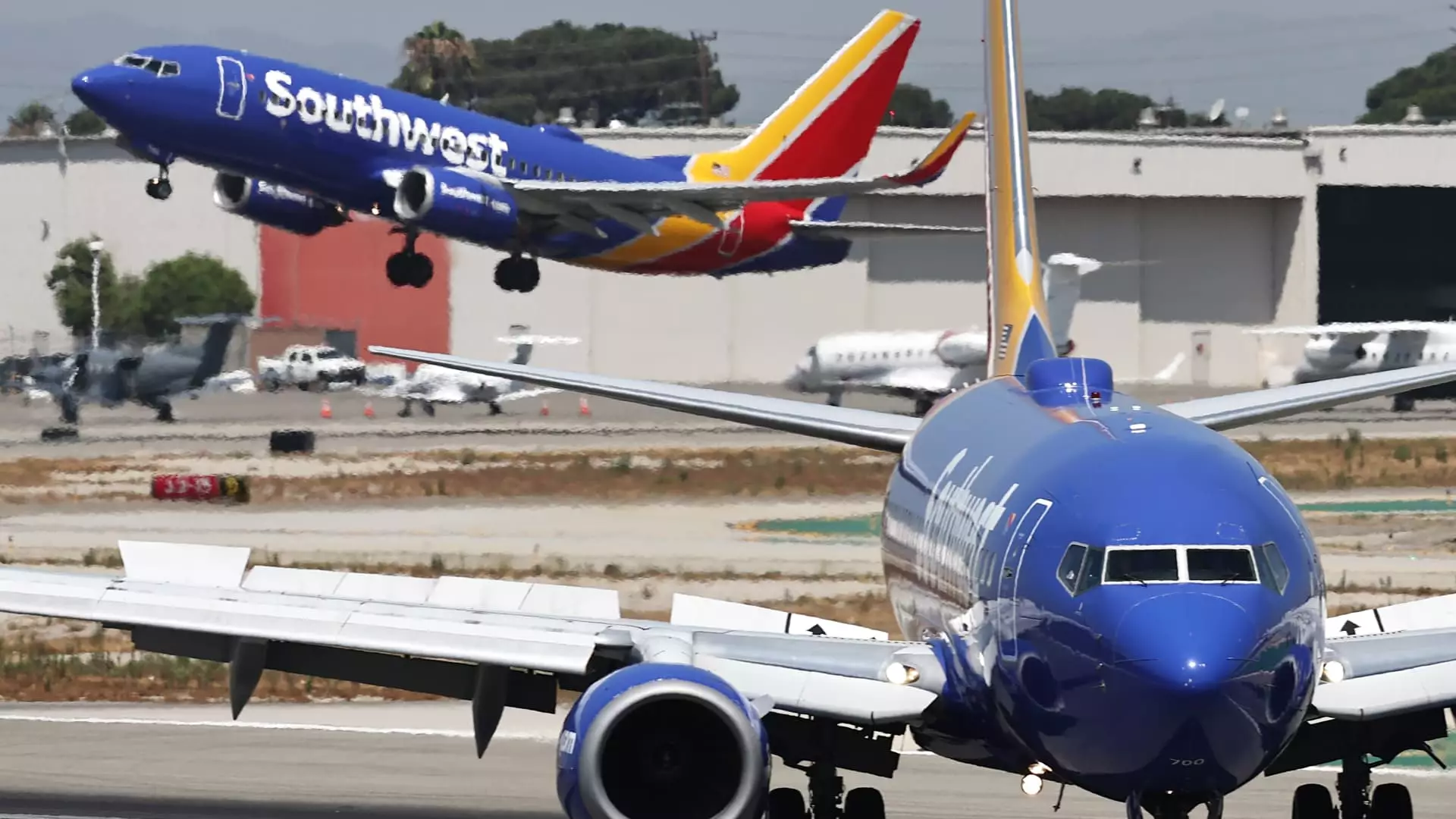In a dynamic move aimed at reinforcing its market position, Southwest Airlines recently elevated its revenue forecast for the third quarter, projecting an increase in unit revenue by up to 3% compared to the same period last year. This marks a notable shift from previous expectations, which had indicated a potential revenue decline of up to 2%. Accompanying this optimistic outlook, the airline’s board approved an extensive $2.5 billion share buyback plan, signaling a robust commitment to enhancing shareholder value even as the airline navigates turbulent discussions with activist investors, particularly Elliott Investment Management.
In a strategic effort to bolster its leadership team, Southwest appointed Bob Fornaro—a seasoned individual in the aviation sector, known for his previous role as the CEO of Spirit Airlines—to its board of directors. This decision underscores Southwest’s commitment to leveraging industry expertise, especially considering Fornaro’s longstanding relationship with the airline, dating back to his tenure as CEO of AirTran, which merged with Southwest in 2011. By welcoming Fornaro, Southwest aims to infuse fresh perspectives and insights into its governance, potentially allaying investor concerns about its operational efficiency.
The backdrop to these developments includes rising pressure from Elliott Investment Management, which has expressed vocal discontent regarding the airline’s leadership and operational strategies. During an investor day event at the airline’s Dallas headquarters, CEO Bob Jordan and his executive team will endeavor to reassure stakeholders of their strategic direction. The leadership’s aim is to demonstrate a firm path towards increased profitability while emphasizing recent innovations within their traditional business model, which has seen significant adaptations in an industry evolving swiftly around them.
Southwest Airlines has made notable adjustments to enhance revenue streams, such as the introduction of assigned seating and the provision of extra-legroom options. However, amidst these changes, the airline has reiterated its long-standing policy of allowing two free checked bags—a decision that it believes not only strengthens customer loyalty but also fosters market share growth that outweighs potential revenue loss from baggage fees. This approach highlights Southwest’s strategy of maintaining customer-centric policies even while exploring new revenue-generating avenues.
In a bid to streamline operations and manage costs effectively, Southwest has announced reductions in service within its Atlanta base, which may result in the reassignment or layoffs of over 300 pilots and flight attendants. This tough but necessary decision reflects the airline’s intent to optimize operations strategically amid financial pressures. Additionally, with executive chairman Gary Kelly planning to step down by the end of next year, the call for leadership restructuring continues, as Elliott reiterates its demands for substantial changes at the top tier of the airline’s management.
As Southwest Airlines maneuvers through a complex landscape marked by investor demands, operational transformations, and a commitment to core values, it remains poised for potential recovery and growth in an increasingly competitive market.


Leave a Reply